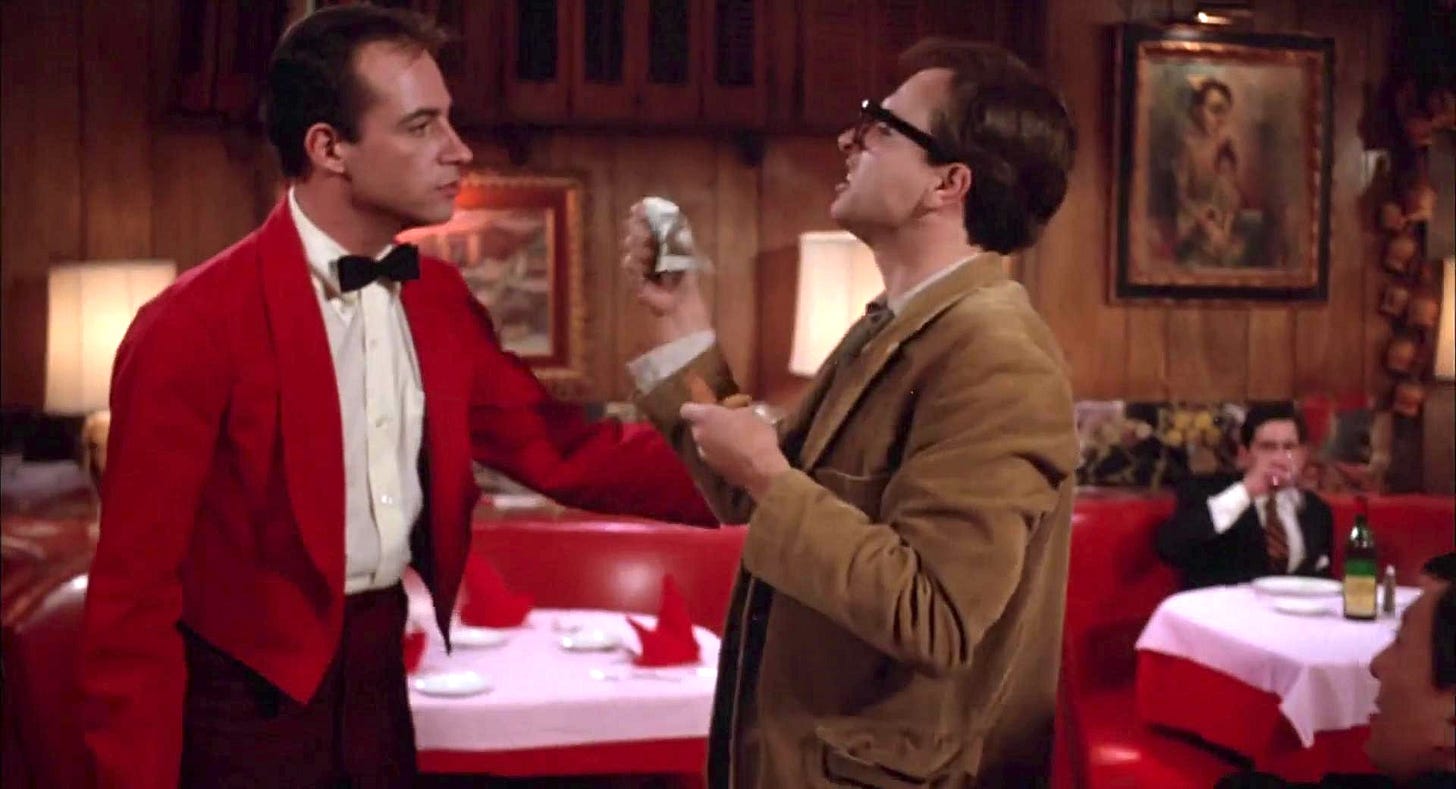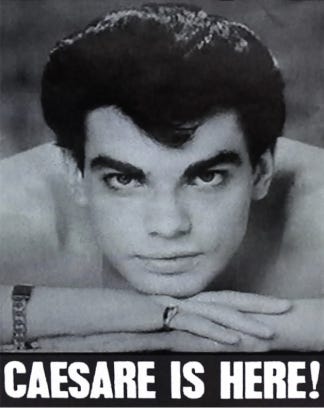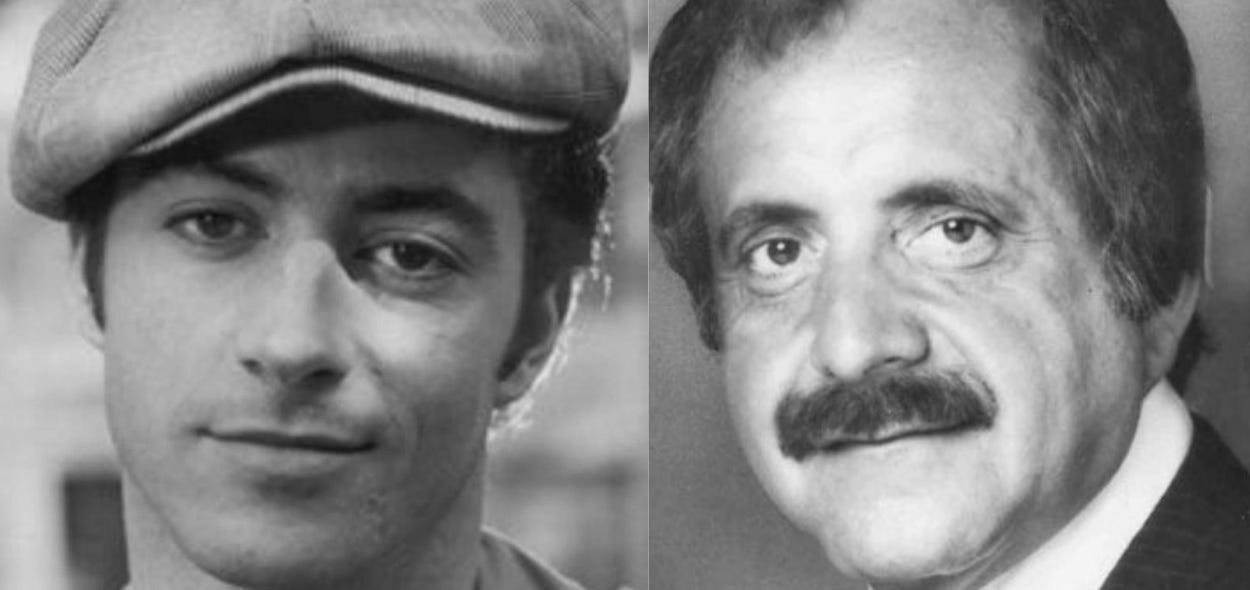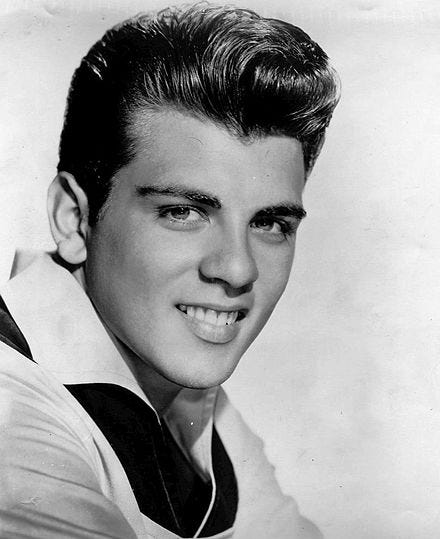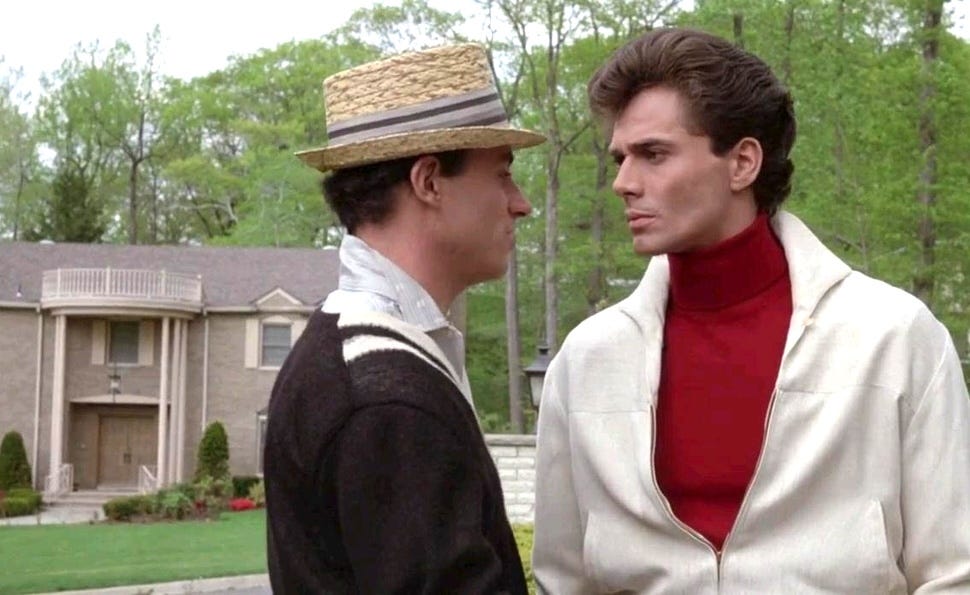Originally released by United Artists in November of 1980, The Idolmaker had a brief run in theaters between UA’s earlier release of Raging Bull and the studio’s big Christmas movie, Heaven’s Gate, which bombed so badly that UA ended up going bankrupt the following year.
Yet, even though it didn’t do well at the box-office, The Idolmaker garnered strong reviews at the time, especially for the performance by newcomer Ray Sharkey in the title role. I remember being mesmerized by the movie when I saw it in college.
It was also the directorial debut of Taylor Hackford, best known for An Officer and a Gentleman. The movie is loosely based on the life and career of Robert Marcucci, who discovered both Frankie Avalon and Fabian and turned them into stars during the early days of rock’n roll.
Watching The Idolmaker again now 44 years later, I’m still impressed by this very compelling film.
(Warning: Spoilers Ahead)
Set in New York City in 1959, Vincent Vacarri (Ray Sharkey), waits tables at his brother’s restaurant, but his real passion is rock’n roll music - both as a songwriter with his shy, quiet, friend, Gino Pilato (Joe Pantoliano) and as a would be music producer. Unfortunately, Vincent can’t record his own songs.
You see, even though Vincent has a beautiful voice, he doesn’t have “the look” that sells records. In fact, Vincent is balding and to put it bluntly, isn’t easy on the eyes. So Vincent sets out to find someone more handsome to sing his songs.
When Vincent sees a good-looking young sax player named Tommy Delusso (Paul Land) perform with his band at a small club, Vincent instinctively realizes he can turn the saxophonist into a teen-age heart-throb.
A few months later, Tommy, now renamed Tommy Dee, performs at a local record hop for kids, lip synching along to his record but performing all of the dance moves he’s learned from Vincent. Within seconds, Tommy Dee has the pre-pubescent teenage girls screaming and wanting more.
This is one of the film’s most powerful scenes because while Tommy is performing on-stage, Vincent mimics the exact same moves - the ones he taught the young man - off-stage and imagines he’s getting all the adulation and applause instead of Tommy Dee.
After Vincent makes a few well-placed bribes to influential deejays, Tommy’s record shoots to number one. Tommy even makes the cover of the nation’s most popular teen magazine thanks to a merchandising deal Vincent makes with the magazine’s editor.
The two are on their way. But the easy success goes to Tommy Dee’s head and soon he becomes an egotistical asshole.
Taking the advice of his father not to put all his eggs in one basket, Vincent searches in vain for a new talent to mold into another star. By coincidence, while dining at his brother’s restaurant, Vincent spots a young, accident-prone 16 year old busboy, Guido, (Peter Gallagher in his film debut) and realizes that underneath the boy’s awkwardness are fine features, beautiful eyes, and most importantly, star quality.
After sweet-talking the young boy’s grandmother, Vincent becomes Guido’s guardian and begins the process of turning him into a teen idol named Caesare.
However, there’s just one problem…
Guido can’t sing.
After a disastrous trial performance at a small club, things look hopeless for both Vincent and Guido. Yet, that doesn’t stop Vincent from advertising Caesare as a star before the boy is ready.
Vincent has posters plastered all over New York City that ask “Who is Caesare?” and states that “Caesare is Here!” In one of the film’s most amusing sequences, young teen girls tear the posters off building walls as fast as they’re put up.
The anticipation and expectations are now higher than ever. Can Vincent turn Guido into a star?
At the same time, Tommy Dee gets jealous of all the attention Vincent is giving Guido and feels neglected, so Tommy dumps Vincent for another manager. It’s a crushing blow that raises everyone’s doubts about whether lightning will strike twice for Vincent.
Then, in one of the film’s most exciting scenes, Guido/Caesare finally makes his official concert debut. But the show is interrupted when a crowd of teenage girls, whipped up into a frenzy, go wild and storm the stage. They literally tear the clothes off the boy. Vincent has achieved his goal - Caesare is a teen sensation.
However, this easy success goes to Guido/Caesare’s head and like Tommy Dee earlier, Guido/Caesare dumps Vincent for a new manager.
Abandoned by everyone, Vincent is alone.
But, in a hopeful ending (created by the film’s producers and not based on Marcucci’s own life), Vincent finally performs his own songs at a New York nightclub to an appreciative audience. He is finally fulfilled.
So what makes The Idolmaker worth seeing today?
First, the story and setting are quite interesting. Mostly based on the real life of music producer/songwriter, Robert Marcucci, almost everything in the movie seems believable since most of it actually happened during Marcucci’s music career.
In fact, after the film’s release, former teen idol, Fabian, who Marcucci discovered and managed during the 1950s and 60s, successfully sued the film’s producers for defamation of character and invasion of privacy. He won a large settlement.
It’s easy to see why Fabian would be so upset. One of the most fascinating aspects of The Idolmaker is how the movie accurately portrays the ruthlessness of the music business back then. Because there was so much money to be made from the young teenage stars, it often didn’t matter if they had any musical talent. They just needed to be wholesome, good-looking and carry a tune.
Another aspect of The Idolmaker that makes the film work are the fine performances by the entire cast, especially Ray Sharkey in the title role. As the hot-headed Vincent, Ray Sharkey does a magnificent job of showing the egotism, conniving, and desperation that makes up Vincent’s character.
Sharkey won the Golden Globe that year for his performance in the film.
Sadly, years later in 1993, Sharkey lost his battle with drug and alcohol abuse and died of Aids (from sharing dirty needles) at the age of 40.
In his film debut, Peter Gallagher also gives a finely nuanced performance. One minute you believe he’s an awkward teen-age kid; the next you believe he’s a superstar. It was the start of Gallagher’s acting career that’s still going strong today.
The rest of the cast, including Paul Land (Tommy Dee); Tovah Fedshuh (Brenda Roberts - the editor of the teen magazine); Joe Pantoliano (Gino, Vincent’s loyal songwriting partner and friend); and Olympia Dukakis (Vincent’s mother) are also excellent in the film.
Since this is a musical drama, the songs for The Idolmaker needed to be great and yet authentic to the period. Director Taylor Hackford’s solution to this dilemma was to hire veteran songwriter, Jeff Barry, who composed the early rock hits, “Be My Baby,” “Do Wah Diddy,” and Chapel of Love” to write the score.
Barry’s songs for The Idolmaker mimic the sound of the late 50s/early 60’s yet also sound fresh and somewhat contemporary as well. It’s an outstanding soundtrack.
Also, for a first film, Taylor Hackford’s direction is very solid. Not only did Hackford get great performances from all of the cast, he also managed to visually capture the period (on a small budget) and create a cohesive, gritty film that doesn’t feel dated at all today.
Although The Idolmaker didn’t do well at the box-office when it was first released, it has now become a cult film thanks to home video.
Because of The Idolmaker’s cult status, in 2013 Justin Timberlake announced that he was going to produce a remake of the film. Unfortunately, that never happened, although imdb still lists the film as being in “development.”
Perhaps it’s just as well, because seeing The Idolmaker again now 44 years later, it’s hard to imagine how a remake could improve on it.
To conclude, The Idolmaker is a forgotten film that deserves to be rediscovered today for its interesting story, fine acting, and great music. It’s the perfect movie for fans of other music-related films like La Bamba, The Buddy Holly Story, and Almost Famous.





